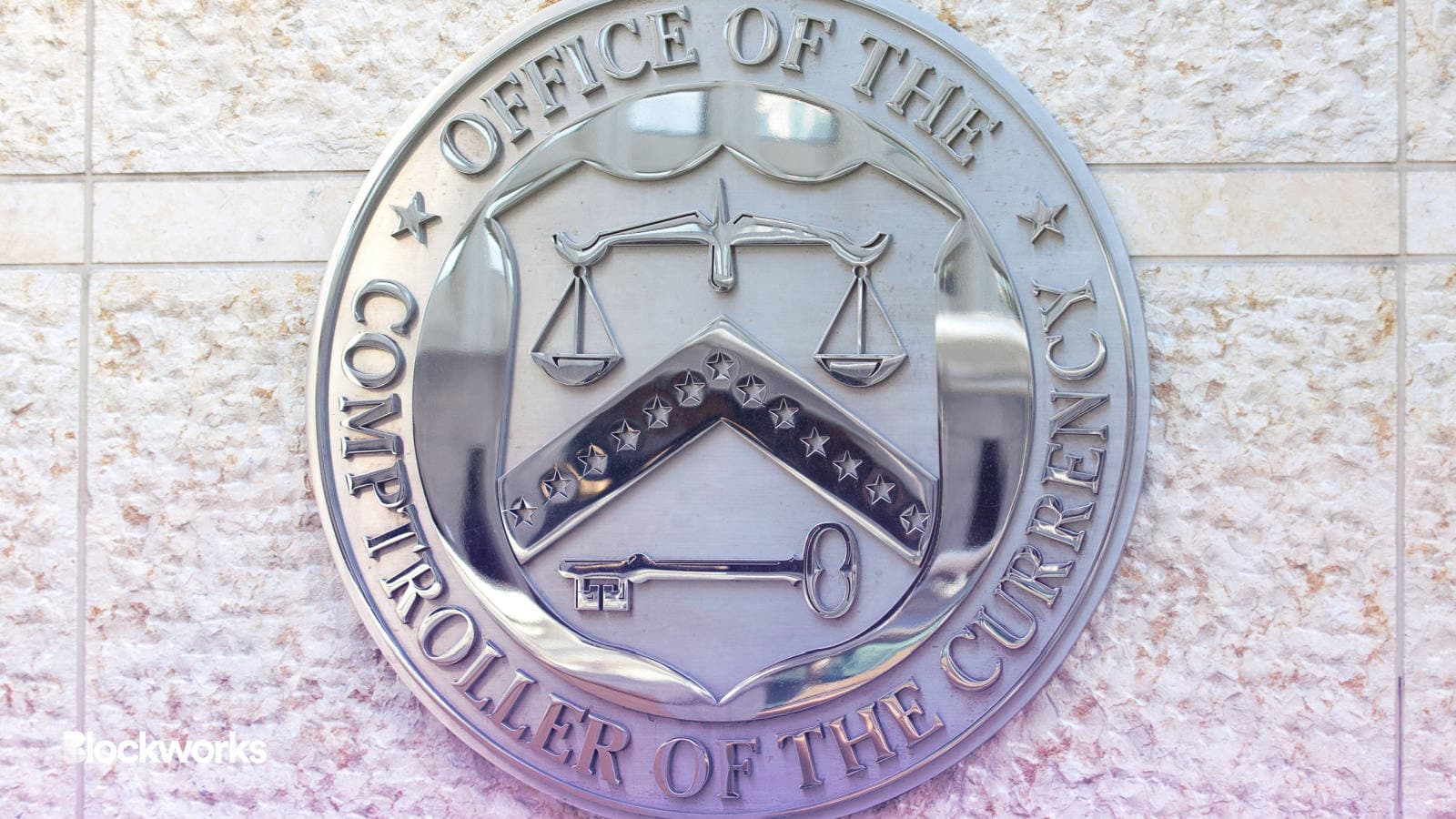Fresh OCC ‘Fintech Office’ Tasked With Keeping Up With Crypto
The OCC, which has been floated as the potential stablecoin regulator, now has an office for studying crypto developments

Mark Van Scyoc/Shutterstock, modified by Blockworks
The US Office of the Comptroller of the Currency (OCC) has established a new fintech office to adapt to technological evolutions in banking, including crypto assets.
The Treasury said the office will add to its knowledge of digital assets, fintech partnerships and other emerging technology models that have an impact on OCC-supervised banks. It will also contribute to oversight of partnerships between traditional institutions and fintech firms.
Prashant Bhardwaj, who has worked in several roles across the financial sector for 30 years, has been appointed the new fintech office’s deputy comptroller and chief financial technology officer. His tenure begins April 10.
“To ensure that the federal banking system is safe, sound, and fair today and well into the future, we need to have a deep understanding of financial technology and the financial technology landscape,” Michael Hsu, acting comptroller of the currency, said in a statement.
The OCC is a department under the Treasury in charge of executing laws relevant to national banks. Some of its powers include supervisory actions against banks, removal of bank directors and rejecting applications for new bank branches.
Hsu has previously urged the crypto industry to introduce stablecoin standards in the same vein as the World Wide Web Consortium and Internet Engineering Task Force’s approaches to guiding internet development.
In December, the OCC reiterated its stance on taking a cautious approach to crypto, pointing to various events that roiled digital asset markets in 2022.
One year earlier, Hsu had issued a reminder to federal savings associations and national banks to not participate in “certain cryptocurrency, distributed ledger, and stablecoin activities” without a non-objection notice from their regulatory supervisors.
“The events of this year in the crypto industry have revealed a high degree of interconnectedness between certain crypto participants through a variety of opaque lending and investing arrangements,” the agency said in a semi-annual Risk Perspective report.
Just before his recent retirement, Senator Pat Toomey pushed legislation that would see the OCC gain direct oversight of stablecoin issuers by way of a specialized licensing charter.
The agency was among three powerful US financial regulators to express skepticism over financial institutions holding crypto assets in January. Along with the Federal Reserve and the Federal Deposit Insurance Corporation, the OCC warned that risks associated with crypto should not spill over into the banking system.
“Based on the agencies’ current understanding and experience to date, the agencies believe that issuing or holding as principal crypto-assets that are issued, stored, or transferred on an open, public, and/or decentralized network, or similar system is highly likely to be inconsistent with safe and sound banking practices,” the agency said.
Get the news in your inbox. Explore Blockworks newsletters:
- The Breakdown: Decoding crypto and the markets. Daily.
- 0xResearch: Alpha in your inbox. Think like an analyst.






